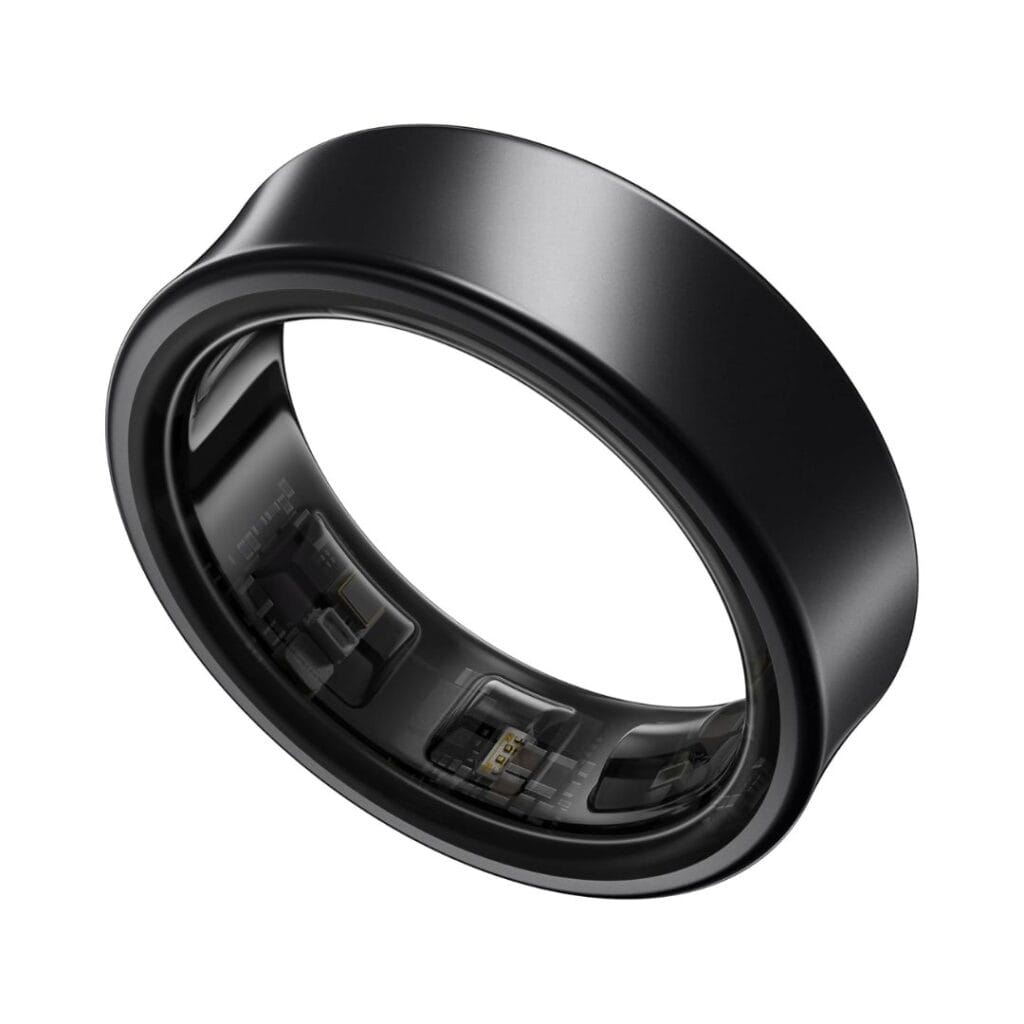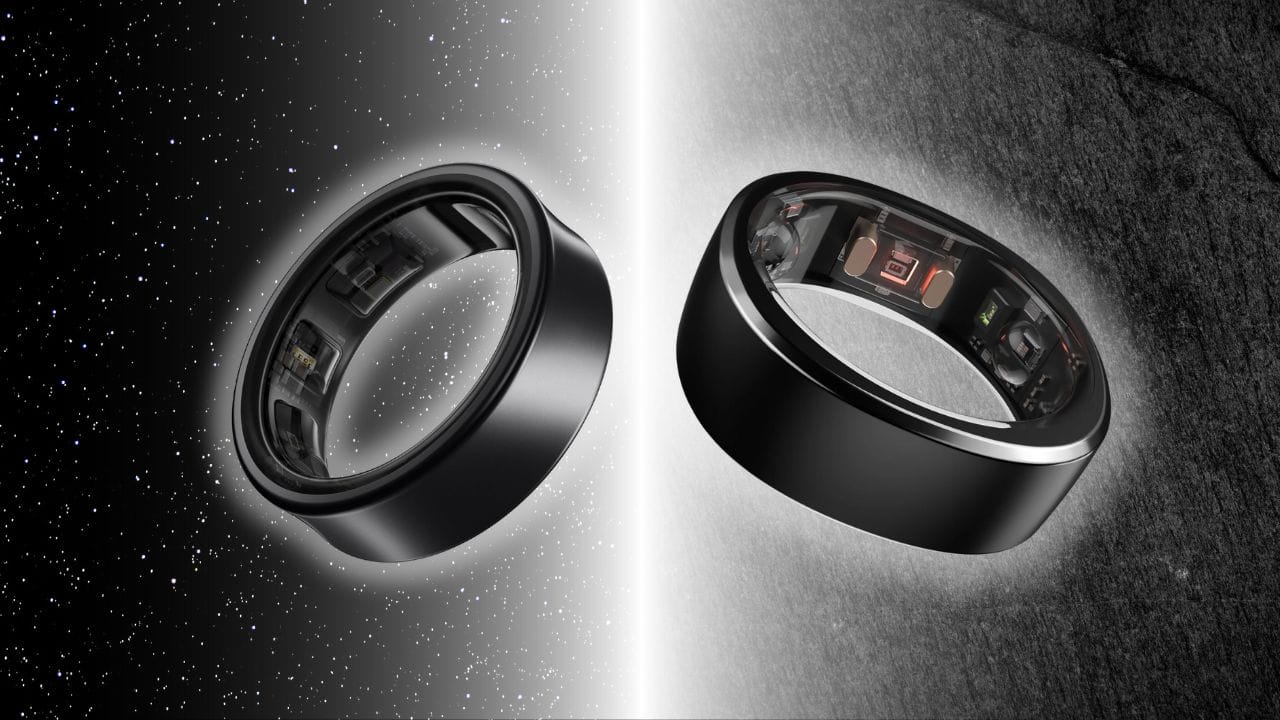I’ve always been curious about smart rings. They’re tiny, easy to wear, and somehow manage to pack in a lot of features for health and fitness tracking. When I heard about the Samsung Galaxy Ring and the RingConn Smart Ring, I couldn’t help myself—I had to try them both.
Now that I’ve spent time using both, I’m ready to share how they compare side-by-side. Whether you’re looking for the best fit for your lifestyle or just curious like I was, here’s my honest comparison of these two smart rings.
Quick Look at Both Rings
Samsung Galaxy Ring
Pros:
- Sleek, premium design with lightweight titanium build.
- Advanced health tracking features like SpO2 and stress monitoring.
- Seamless integration with Samsung devices.
- Fast charging with a solid 6-day battery life.
Cons:
- Limited compatibility with non-Samsung devices.
- High price of $399.
- Fingerprint-prone glossy finish.
- Lacks advanced workout tracking modes.
RingConn Smart Ring
Pros:
- Affordable price at $279 with no subscription fees.
- Reliable sleep and activity tracking.
- Longer 7-day battery life.
- Comfortable, practical design with a matte finish.
Cons:
- Bulky design might not suit all users.
- Fewer advanced health metrics like SpO2 or temperature tracking.
- Basic app insights compared to premium alternatives.
- Lacks ecosystem integrations and detailed workout tracking.
If you feel like reading a full, unbiased review between Samsung Galaxy Ring and RingConn Smart Ring, read on.
Samsung Galaxy Ring vs. RingConn Smart Ring: Which is Actually Better?

Samsung Galaxy Ring
Priced at $399, the Samsung Galaxy Ring offers premium design and integration with Samsung devices.
Perfect for users who value advanced features like stress tracking and detailed sleep insights.
Design and Comfort

When it comes to design, both rings have their strengths, but they’re not without flaws. The Samsung Galaxy Ring has a sleek, modern look that feels premium. It’s lightweight (weighing around 5 grams) and fits comfortably on my finger, even after hours of wear. Its titanium build adds durability, but the glossy finish picks up fingerprints easily, which can be a bit annoying.
The RingConn Smart Ring, on the other hand, has a bulkier design, weighing about 7 grams (you can see it in the image above. Sorry for the dirty hands, just finished polishing at that time).
While it doesn’t look as polished as the Galaxy Ring, it’s surprisingly comfortable thanks to its rounded edges and matte finish. I barely noticed it after the first day, even during sleep. However, its larger profile might not be for everyone.
In terms of comfort during workouts, both rings performed well. Neither slipped or felt awkward while exercising, and I appreciated their water resistance (IP68 for Galaxy, 5 ATM for RingConn). For everyday wear and overall style, I’d lean toward the Samsung Galaxy Ring, but RingConn’s comfort still earns a solid spot.
Features Breakdown: What Each Ring Excels At
Health Tracking
The Samsung Galaxy Ring integrates seamlessly with Samsung Health, offering advanced features like continuous heart rate monitoring, stress tracking, and SpO2 levels. It also uses infrared and LED sensors for detailed sleep tracking. While using it, I appreciated the detailed breakdowns, such as how my stress and heart rate variability (HRV) correlated with my daily activities.
The RingConn Smart Ring focuses on essentials: heart rate, sleep stages, and daily activity tracking. It does a fantastic job with sleep metrics, even identifying disruptions during the night. However, it lacks some of the fancier features like skin temperature tracking that other rings or wearables might offer. The simplicity is a plus for someone who wants straightforward data without getting lost in too many details.
Workout Tracking
Both rings support basic activity tracking but fall short compared to dedicated fitness trackers or smartwatches. The Galaxy Ring is better for Samsung device users who can sync workouts easily. The RingConn is sufficient for casual tracking, but it doesn’t offer specific workout modes or GPS.
App Usability
The Samsung Galaxy Ring app feels polished, with detailed graphs and actionable insights. It’s best suited for people who love digging into data and already own Samsung devices. Meanwhile, the RingConn app is more straightforward. Its minimalist design focuses on the basics, and it’s easy to navigate even for someone new to wearable tech.
Battery Life: Which One Kept Up With My Busy Days
The Samsung Galaxy Ring offers a battery life of about six days, depending on how many features you’re using. I found myself charging it weekly, which fit easily into my routine. Its fast-charging feature—reaching full capacity in under two hours—was convenient.
The RingConn Smart Ring boasts an impressive seven-day battery life, even with continuous heart rate monitoring and sleep tracking enabled. It’s ideal if you prefer a more hands-off approach to charging. Both rings use compact charging docks, which are easy to carry when traveling.
What You Get For Your Money
The Samsung Galaxy Ring comes in at $399, which feels steep but somewhat justified given its premium design and advanced features. The integration with other Samsung devices adds a lot of value if you’re already in the ecosystem. However, if you don’t have a Samsung phone, you’ll miss out on some exclusive features, which makes the price a harder pill to swallow.
The RingConn Smart Ring is more budget-friendly at $279. It doesn’t have the same polish or ecosystem perks, but it delivers solid health tracking and a great app experience without any subscription fees. For someone looking for reliable functionality without breaking the bank, RingConn is a solid choice.
However, no gadget is perfect, and these rings are no exception. The Samsung Galaxy Ring’s biggest downside is its limited compatibility. If you’re not a Samsung user, you won’t get the most out of it. Also, while it looks sleek, the glossy finish can be a bit of a fingerprint magnet.
The RingConn Smart Ring, while affordable and practical, doesn’t feel as premium. Its bulkier design might not be everyone’s cup of tea, and it’s missing some of the advanced tracking features you’d find in higher-end devices. If you’re a data nerd who loves detailed insights, you might find it a little basic.
Final Verdict: Which One Would I Recommend?
After trying both, I think the decision comes down to your priorities. If you’re already in the Samsung ecosystem and value sleek design and advanced features, the Samsung Galaxy Ring is worth considering—if you’re willing to pay the premium price. On the other hand, if you’re looking for a more affordable option that nails the basics, the RingConn Smart Ring is a fantastic choice.
For me, the RingConn’s simplicity and better battery life won me over. While it’s not as flashy, it checks all the boxes I need without adding extra complexity or costs.
I hope my experience helps you figure out which one fits your needs best. For me, I’ll be sticking with the RingConn for now, but the Galaxy Ring certainly has its charm if you’re looking for a premium option.

Samsung Galaxy Ring
Priced at $399, the Samsung Galaxy Ring offers premium design and integration with Samsung devices.
Perfect for users who value advanced features like stress tracking and detailed sleep insights.





